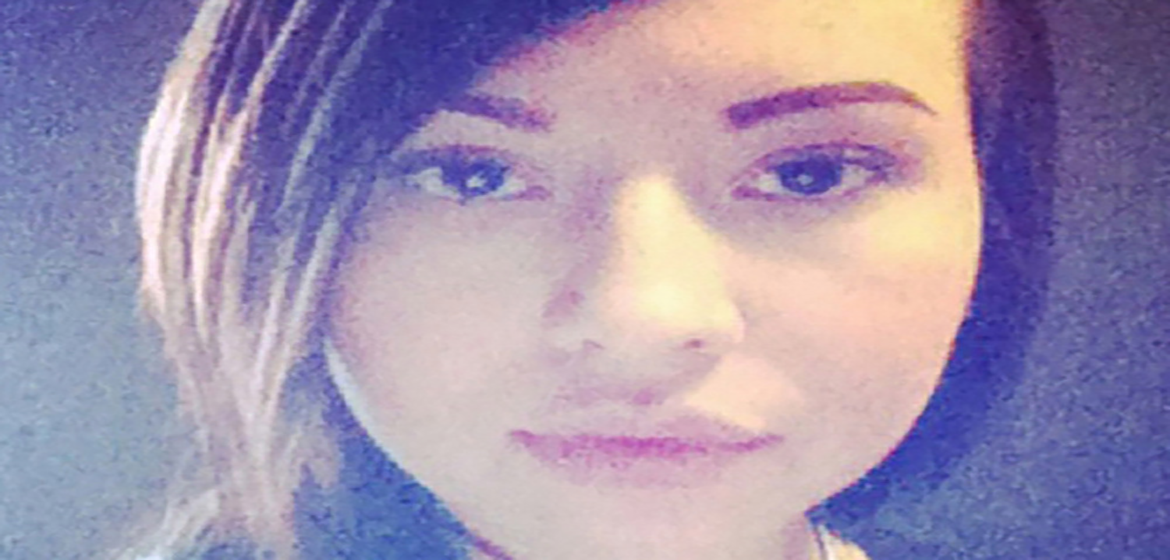Melina Laboucan-Massimo shares the story of her sister Bella, who died aged 25, after falling 31 stories from a high-rise condo in Toronto. Her case remains unsolved.
The day I found out that my sister Bella had been found dead on the terrace of a high-rise condo near Toronto’s waterfront, without an explanation of why or how she fell, was the day I understood what it feels like to grieve so deeply and so immensely that nothing else matters. It felt like there was no end to the screaming sadness.
When asked what the (MMIW) in Canada means to me, I think of pain, grief, shock, sadness, and anger. I think of the empty void that families suffer after experiencing the loss of a cherished and loved one in such drastic, traumatic, and violent ways that no woman or girl should ever be subjected to. I think of the ripple effects that families experience after a tragic event like this happens and how a family copes with this trauma. I think of the younger generation in each family, who must try to understand that their mother, sister, aunt, or grandmother has not only been violently taken but continues to be inhumanly disrespected and disregarded after her death, one of the many blights in Canada’s history and present-day reality.
On the hardest and heaviest days, I think not only of my own family’s experience, but of the many Indigenous families who need support after experiencing this — but do not have it. I think of the hundreds of families who search for justice for their murdered loved ones and the years they have searched for their missing family members who disappeared without a trace.
With the increased visibility of MMIW over the past few years, we have seen the issue debated in the Canadian parliament, and is increasingly becoming a well-known issue being now consistently covered by national media, but this only happened after years of our communities raising the alarm bell.
The previous Harper government refused to call a national inquiry into MMIW to address this issue. However, this past fall after Justin Trudeau was named Prime Minister , heeding to the repeated pleas from both Indigenous and non-Indigenous politicians and communities across the country.
From my point of view and that of many surviving family members of MMIW and advocates, an inquiry should not just focus on confirming what we already know — that this is a widespread societal problem. An inquiry needs to inspect how the police are dealing with the cases of MMIW and to require that the RCMP and local police departments share their files with families, especially when cases are unsolved and are idle like my sister’s case.
The Inter-American Commission of Human Rights released a report on murdered and missing Indigenous women in 2015. It documented how “the police have failed to adequately prevent and protect indigenous women and girls from killings, disappearances and extreme forms of violence, and have failed to diligently and promptly investigate these acts.”
In Canada, Indigenous women are five times more likely to die a violent death than their non-Indigenous counterparts. It is clear that action to needs to be taken to address this.
It is also necessary to recognize that violence against Indigenous women has systemic causes that are colonial in nature, and dates back to racist policies that included taking Indigenous children from their parents and . The Canadian government needs to recognize the impacts detrimental government policies have had and continue to have on Indigenous communities that leave Indigenous women in precarious and vulnerable positions in society.
We need to to ultimately address the reasons why Indigenous women’s lives are not valued in Canadian society as much as the lives of non-Indigenous women.
We have work to do regardless of what the government does: we need to rebuild, heal, and restore what we have lost. Indigenous peoples are strong, courageous, and will continue to push back against colonial violence. All of us are needed in this work to rebuild our families, communities and Nations.
The day my sister passed away was the day Toronto became an unsafe place for me, filled with memories of pain and loss. When I let myself feel the horror and the pain from that day, I am reminded of all the memories that Bella and I had together growing up and all the future moments we will not share. Bella will not be there the day I finally bring a child into this world and my children will never know her, or be able to look into her eyes, or call her aunty.
Despite this, I will continue to do this work in honor of my sister and all the women who have lost their lives.
Source:
Related to SDG 10: Reduced inequalities and SDG 15: Peace, justice and strong institutions



